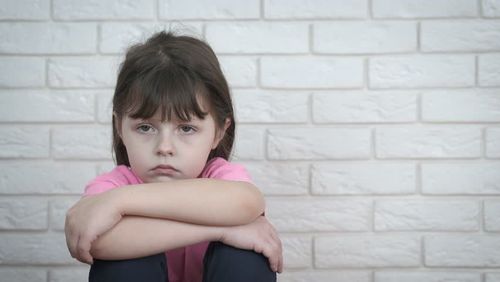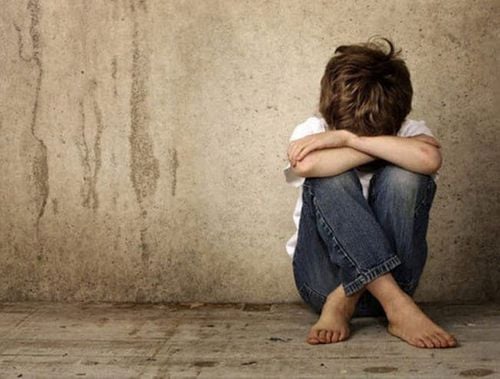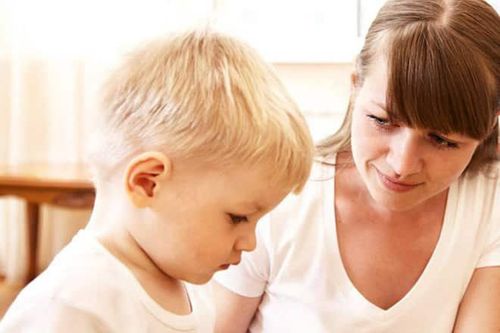This is an automatically translated article.
The article is professionally consulted with Master, Doctor Nguyen Minh Son - Interventional Cardiologist - Department of Medical Examination & Internal Medicine - Vinmec Nha Trang International General Hospital.Autism is a group of complex disorders of brain development. Children with autism often repeat certain movements, lack adaptation and interest, do not know how to play, are rigid... Therefore, observing the behavior of children with autism is very important to take measures. timely treatment.
1. What is autism?
Autism, also known as autism spectrum disorders, is a group of complex disorders in brain development. According to research by the American Institute of Mental Health, autism spectrum disorder in children is a mental disorder of the neurodevelopmental type that manifests very early. It is a complex developmental defect of the brain, which develops 75% in the first three years of a child's life, usually occurring in any child, regardless of ethnicity or society. or parental level.Autism is a specific disorder in the inability to establish interactions with the outside society, making the child lose the ability to communicate, especially in terms of language, and can be hurtful. for the child himself for those self-harming, disruptive actions. Therefore, recognizing the signs of children with autism is very important to support timely treatment.
2. Observe the behavior of children with autism
The behavior of children with autism includes many different aspects, such as language, actions, emotions...2.1. Expression of autistic children emotionally From an early age, children do not make eye contact with their mothers, do not look directly in front of them or look as if no one is there, often inattentive, unable to distinguish familiar people. and strangers. Children with autism often do not follow their mothers, do not show love or attachment to their mothers, especially do not know how to be happy when their parents come home.
2.2. Behaviors of autistic children in terms of language One of the behaviors of children with autism is speaking monotonous sounds, without intonation, or mimicking other people's words and often mumbling to himself, sometimes out loud. meaningless repetitive sounds. Children do not know how to imitate adults to do as well as follow and when there is any need that children do not know how to express to make adults understand what they need, they must suggest instructions many times before children can follow them.

Một trong các hành vi của trẻ tự kỷ đó là không biết bắt chước người lớn để làm cũng như nói theo
Likes to play with something. Pay attention to the details of the toy rather than how the toy is used. Enjoys being active and playing with household items excessively. Children like to swing their bodies, overactive limbs. Or like to walk on tiptoes. Children with autism hate change very much and will react with anger or panic when the furniture in the house changes or when the mother changes the hairstyle,... For stimuli from the outside environment, children spontaneously may be over- or under-responsive. Children can be interested in small self-made sounds such as tapping objects in their ears, scratching but ignoring the words of their parents,... Children do not know fear when in danger, can self-injury such as scratching, pulling hair, hitting the head, etc. Children may not sleep at night but are still full of energy during the day. Children may have movement disorders such as slowing down due to decreased muscle tone, abnormal movements, head banging, face grimacing, hand waving, etc. So far there is no cure for autism spectrum disorder. Autistic children, however, with early access to treatment methods can help improve and integrate better in society. Therefore, when observing a child with the above symptoms, parents need to take their child to a doctor as soon as possible for appropriate diagnosis and intervention.
Currently, the Pediatrics Department at Vinmec International General Hospital is trusted by many parents to examine the diseases that babies and children have. Vinmec brings satisfaction to customers and is highly appreciated by industry experts by:
Gathering a team of leading pediatricians: including leading experts with high professional qualifications ( professor, associate professor, doctorate, master), experienced, worked at major hospitals such as Bach Mai, 108.. The doctors are well-trained, professional, have a heart - a vision. Understanding young psychology. In addition to domestic pediatric specialists, the Department of Pediatrics also has the participation of foreign experts (Japan, Singapore, Australia, USA) who are always pioneers in applying the latest and most effective treatment regimens. . Comprehensive services: In the field of Pediatrics, Vinmec provides a series of continuous medical examination and treatment services from Newborn to Pediatric and Vaccine,... according to international standards to help parents take care of their baby's health from birth to childhood. Advanced techniques: Vinmec has successfully deployed many specialized techniques to make the treatment of difficult diseases in Pediatrics more effective: neurosurgery - skull surgery, stem cell transplantation blood in cancer treatment. Professional care: In addition to understanding children's psychology, Vinmec also pays special attention to the children's play space, helping them to play comfortably and get used to the hospital's environment, cooperate in treatment, improve the efficiency of medical treatment.
Please dial HOTLINE for more information or register for an appointment HERE. Download MyVinmec app to make appointments faster and to manage your bookings easily.













